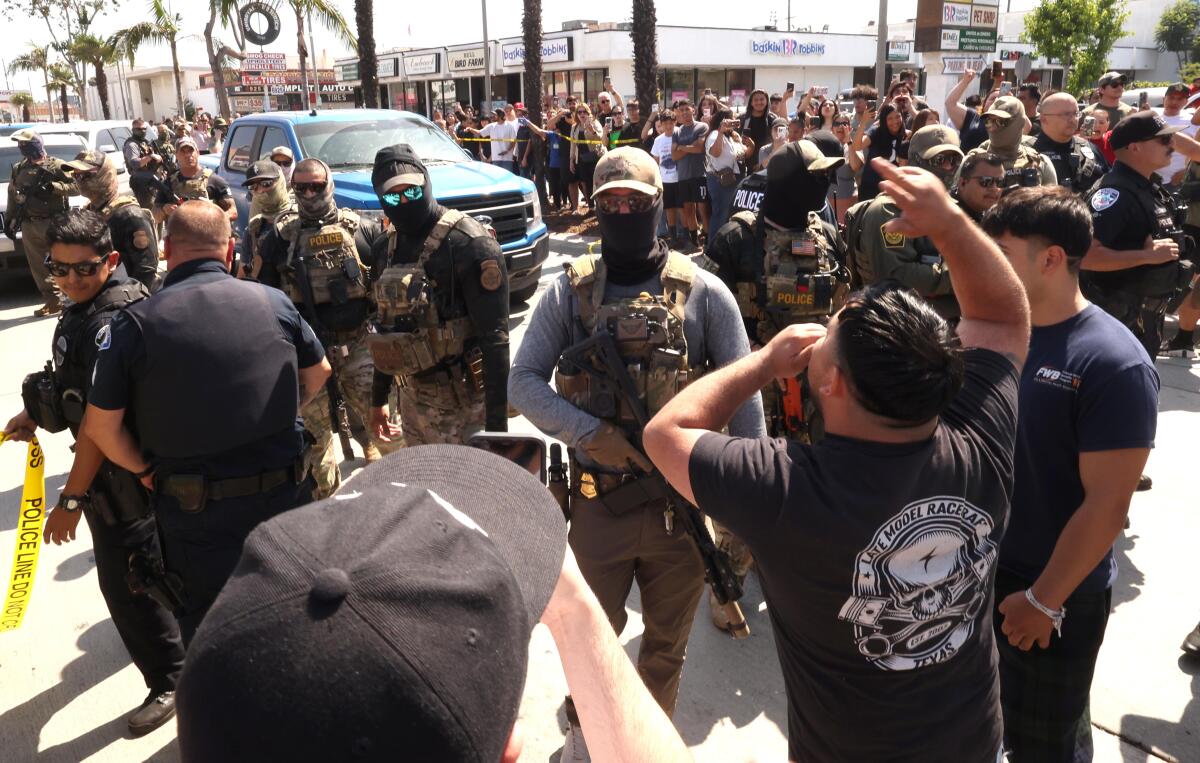UPDATE: A pivotal legal battle is unfolding as the 9th Circuit Court of Appeals appears set to uphold a federal judge’s decision that halts controversial immigration enforcement tactics employed by the Trump administration in Southern California. This urgent case, heard on July 17, 2023, could lead to further Supreme Court involvement, with significant implications for immigration policy across the nation.
During Monday’s hearing, the three-judge panel fiercely challenged the legality of the U.S. Customs and Immigration Enforcement’s (ICE) “roving patrols,” which have been criticized for detaining individuals without reasonable suspicion. Judge Ronald M. Gould questioned the rationale behind such operations, asking, “What would motivate the officers to grab such a large number of people so quickly?”
Earlier this month, Judge Maame Ewusi-Mensah Frimpong issued a temporary restraining order effectively stopping ICE agents from conducting these aggressive sweeps, citing violations of the 4th Amendment against unreasonable searches and seizures. The Justice Department condemned this ruling as a “wholesale judicial usurpation” of federal authority, claiming it undermines the ability to enforce immigration laws.
Deputy Assistant Attorney General Yaakov M. Roth argued that the government was unfairly restrained without adequate proof of constitutional violations. “It’s a very serious thing to say that multiple federal government agencies have a policy of violating the Constitution,” Roth stated during the tense 90-minute hearing. However, the judges appeared skeptical, emphasizing that if ICE is not violating the ruling, then no real harm exists.
Frimpong’s order specifically prohibits agents from using race, ethnicity, language, or location as pretexts for enforcement in several counties, including Los Angeles and Orange County. “It appears that they are randomly selecting locations like Home Depots and car washes,” noted Judge Marsha S. Berzon, challenging the government’s enforcement practices.
As the case unfolds, the implications extend beyond legal boundaries. Mohammad Tajsar of the ACLU of Southern California warns that the current ICE policies disproportionately target individuals regardless of their immigration status. “They have said, ‘If it ends in handcuffs, go out and do it,’” he asserted, revealing the anxiety that such tactics create among vulnerable communities.
The 9th Circuit’s decision could redefine the scope of law enforcement’s authority under the 4th Amendment, particularly in California, which has seen heightened tensions over immigration enforcement. Legal experts, including Orin S. Kerr from Stanford Law School, stress that the outcome will set significant precedents for privacy protection against aggressive policing.
A ruling is anticipated by the end of this week, and if the appeals court does not grant the stay requested by the administration, it is likely that the Justice Department will pursue further appeals, potentially escalating this legal conflict to the Supreme Court.
As this story develops, the ramifications of the court’s decision will be felt far beyond California, impacting immigration enforcement policies nationwide and influencing the lives of countless individuals caught in this legal crossfire. Stay tuned for immediate updates as this urgent situation unfolds.






































































